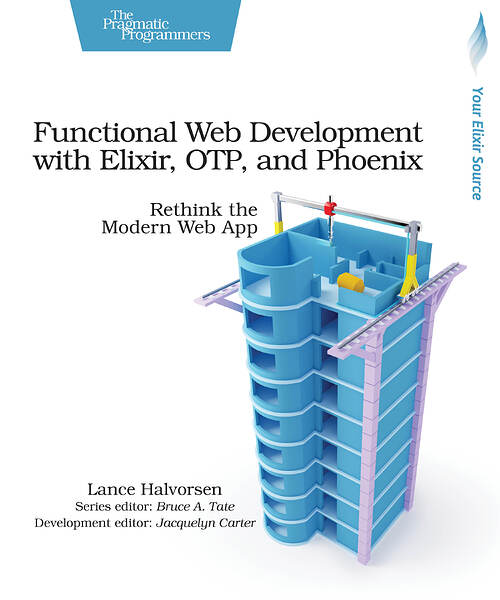Lance Halvorsen @Lance
Series editor: Bruce A. Tate @redrapids
Developmental editor: Jacquelyn Carter @jkcarter
Elixir and OTP provide exceptional tools to build rock-solid back-end applications that scale. Build a web application in a radically different way, with a back end that holds application state. Use persistent Phoenix Channel connections to create the full application in distinct, decoupled layers.
Start by building the business logic as a separate application, without Phoenix. Model the application domain with Elixir Agents and simple data structures Add OTP Behaviours such as gen_server and gen_statem that make managing in-memory state a breeze. Create a supervision tree to boost fault tolerance while separating error handling from business logic. Use Phoenix to build a web interface decoupled from business logic. Use ultra-scalable Phoenix Channels to establish persistent connections between the stateful server and a stateful front-end client.
Learn a whole new way of building web applications with Elixir, OTP, and Phoenix.
"A must-have for new Elixir programmers ready to take on modern web development with the unique features of the platform. Lance gently guides readers through complex topics using fun, digestible examples.”
–Chris McCord, author of the Phoenix Framework
Don’t forget you can get 35% off with your Devtalk discount! Just use the coupon code “devtalk.com" at checkout ![]()

